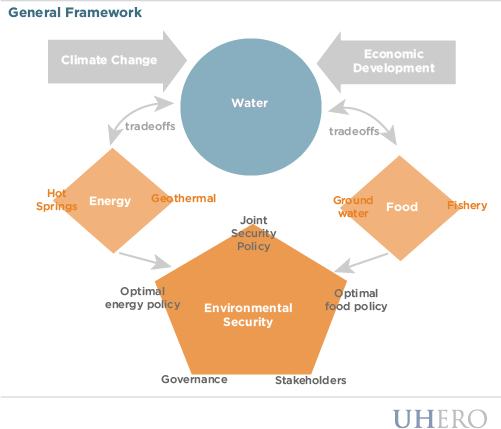By Christopher Wada
The water-energy-food nexus is one of the most important and fundamental global environmental issues facing the world today. The US Geological Survey estimates that the United States used 201 billion gallons per day (bgd) of freshwater for thermoelectric power generation and 128 bgd for irrigation in the year 2005. Combined, energy generation and irrigation accounted for roughly 80% of all water withdrawals over that period. At the same time, energy is a key input for the production of freshwater. A 2006 study prepared for the California Energy Commission estimated that the electricity required to process one million gallons of water in a typical urban water system ranges from 4,000 kWh per million gallons in Northern California to 12,700 kWh in Southern California, and water-related energy use comprised over 19% of total energy use in the state. Although the wide range in values suggests that water-related energy use depends on a variety of location-specific factors, the interconnectedness of the resources is clear.

As demand for each of the resources grows, examining tradeoffs will become especially important. For example, biofuels may be developing into a viable alternative to petroleum, but the implications for water resources will be considerable. The UHERO Project Environment team will be working with the Research Institute for Humanity and Nature to develop a framework capable of quantifying such tradeoffs. The project will focus heavily on coastal regions in the Asia-Pacific “Ring of Fire”. For more on economic approaches to water and energy management, visit UHERO’s Project Environment.



